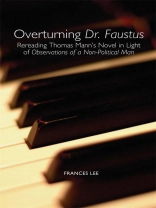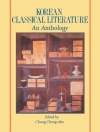A radically new view of Mann’s last major novel.
Thomas Mann’s last major novel,
Doktor Faustus, revolves around the transformation of traditional German culture into Hitler’s fascist Germany, a process that intrigues and confounds thinking people still today. Mann has always been considered an exemplary and authoritative portrayer of German culture, and his opinion on the rise of fascism carries considerable weight. Unfortunately, the novel has always been interpreted as saying the opposite of what it does in fact say. Frances Lee provides a radically new interpretation by relating in a detailed manner to the text of Doktor Faustus the arguments expressed by Mann in his
Observations of a Non-Political Man — a bookof political essays published in 1918. This approach resolves many of the features that have been seen by critics as flaws or contradictions in the novel. Lee establishes what is actually happening in the novel in its historicalsetting, showing Mann’s view of how the acceptance of fascism occurred and the determining role he attributed to the academic community in bringing about the disaster. Her book will be of interest to both amateur and professionalstudents of Mann, particularly because it points to rich new directions for study.
Frances Ann Ray Lee received the Ph.D. in German literature from the University of Toronto in 2005.
Innehållsförteckning
Introduction
Die Betrachtungen eines Unpolitischen
The Reception of
Die Betrachtungen eines Unpolitischen
The Significance of
Die Betrachtungen eines Unpolitischen for Doktor
Faustus
Going to Leipzig
Adrian’s Studies in Leipzig
Adrian’s
Strenger Satz
Zeitblom’s Propensity to Demonology
Interlude
The Outbreak of the First World War
The End of the First World War
Adrian’s
Apocalipsis cum figuris
Adrian’s Devil
The Story of Marie
Adrian’s Last Speech and Final Defeat
Doktor Faustus: A New Perspective
Bibliography
Index












